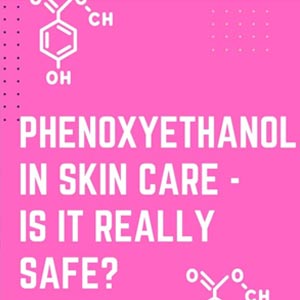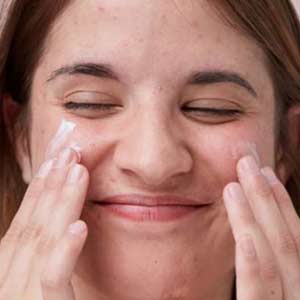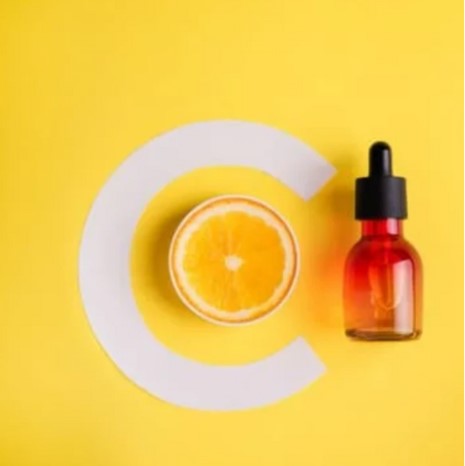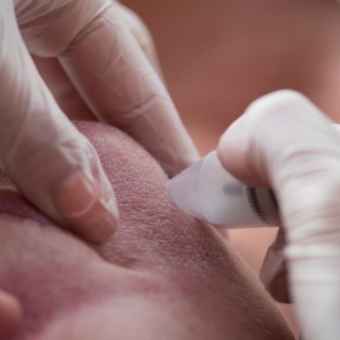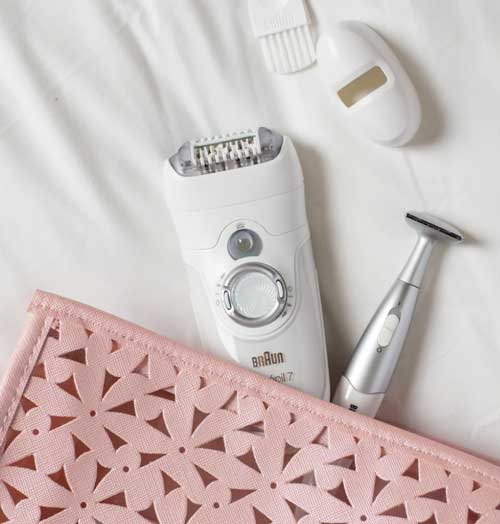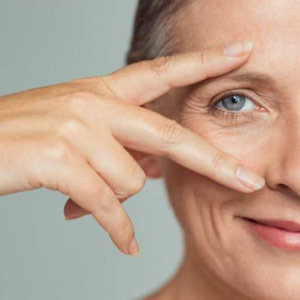Hydroquinone Side Effects To Be Aware Of
This article was updated on:

There has been a form of debate as to whether hydroquinone is good for the skin or not. Some argue that it is not harmful when controlled and used in small proportions, but in the long run, if a product cannot be used in its entirety, then that product should be carefully scrutinized.
The human skin is the largest organ in the human body and the very first thing you notice when you see a person, and it attracts so much attention; therefore, there is a strong desire to make the skin look more attractive and beautiful.
Consequently, hydroquinone has become increasingly popular, especially among people with hyperpigmentation or who want to lighten their skin.
Hydroquinone - what is it, and what does it do?
Hydroquinone is a skin-lightening agent that is used to brighten the color of the skin. In addition, it is used to even out areas of the skin that have been affected by various forms of hyperpigmentation. It usually comes in cream, lotion, gel, or emulsion.
Hydroquinone acts as a bleaching agent by reducing the melanocytes, which are the cells that produce melanin.
Hyperpigmentation results from an excess of melanocytes, causing the pigment to become more visible.
Using hydroquinone for a few months should result in a complete whitening of the skin, but mild effects are noticeable as early as the fourth week of use.
Though this article is primarily concerned with hydroquinone's side effects, it is worth mentioning some of the benefits often associated with its use.
Benefits of Hydroquinone use on the skin
Hydroquinone serves many different purposes for various people with different skin problems, and it has proven to be incredibly effective in many different cases.
Some of the benefits of hydroquinone are:
Treatment of hyperpigmentation: for people who have suffered from certain skin conditions, such as acne, it is not uncommon for dark spots resulting from melasma or brown spots to remain.
Hydroquinone, when applied regularly, has proven to be exceptionally effective in clearing hyperpigmentation.
Skin tone enhancement: hydroquinone is also known to enhance skin tone. Since it's a skin-lightening agent, people who want to make their skin lighter tend to use it.

Side effects of hydroquinone
Interestingly, hydroquinone as a skin product is banned in Europe and almost all of Asia. What is it about this product that makes many governments and regulators around the world deem it unsafe enough for usage as a cosmetic product? Why pass off such an opportunity for improved income from such an economically interesting product?
The answer could be found in a simple consideration of the far-reaching effect of this product – the belief that hydroquinone could be carcinogenic as its concentration increases. Prolonged usage of the product has been linked to certain types of cancer for some time now.
Additionally, hydroquinone use extends beyond only the skin, as it has also been very instrumental in the plastic industry, where it is used for various treatments. Furthermore, it is utilized in the development of photos and a few other non-cosmetic uses.
So it is pretty understandable then why it is believed to be a toxic chemical that is not fit for human skin in some quarters. Generally, hydroquinone should not be used on brown skin, as it adversely affects the skin's nervous system and, in some cases, even causes hyperpigmentation - the very problem it was supposed to fix.
Have You Tried 100% Plant-Based??
Conditions linked to Hydroquinone side effects:
Ochronosis: This results in changes to the skin color and texture, making it dark and dense. On brown skin, it can also manifest as yellow or gray spots. Due to this reason, it is a banned product in South Africa; however, smuggling of the product is still an issue.
Cancer: Long-term use of hydroquinone has been linked to various cancers, particularly blood cancers such as leukemia, and research efforts are ongoing to understand this better.
Changes in certain kidney functions: Hydroquinone is also thought to be responsible for some adverse effects on renal function. In addition, there is a possibility that prolonged use of hydroquinone can lead to outright kidney failure.
High levels of mercury: Throughout an extended period, absorbing mercury into the bloodstream through the skin increases the risk of liver failure, kidney failure, and damage to the nervous system.
During pregnancy, mercury is also highly toxic—pregnant women who use mercury-containing creams risks giving birth to babies with brain damage and other deformities.
Colored Skin type: The demography with a greater risk
There is a psychological and social pressure prevalent amongst people of color who desire lighter skin complexion, leading them to employ various means of achieving that goal.
This desire is very well known and can be traced back to parts of the social effects of colonization of the black race by the so-called "superior white race."
Although there are many natural ways to improve the tone of the skin that are mostly safe and relatively affordable, many people still prefer to use
hydroquinone-based soaps and creams.
Since thousands of these products are on the market, with some of them containing very high amounts of hydroquinone, they tend to get spoiled for choices.
Some may even produce the desired effect depending on the strength and texture of the skin; the more likely results are those that, in the long run, leave the skin severely damaged.
Therefore, it is important to spell out the long-term effect and the wider implication of adopting this product, ultimately leaving the skin scarred and burned in the end.
The desire to have a lighter skin complexion may be one that will be with people of color for a while.
Still, it is vital to adopt a safer method of doing this rather than introducing potentially toxic substances onto the skin surface.
Although it is also understandable that many people use the product to treat hyperpigmentation and other unattractive dark spots, especially on the face, a whole lot of caution needs to be taken.
The long-term consequences and the possible side effects of the products must be weighed against the benefits or desired result when using products made from high levels of hydroquinone concentration.

Should you use hydroquinone?
Several valid points have been raised in this article about some of the adverse consequences of hydroquinone use. However, despite its limitations, the fact remains that this product is available for purchase, and more people are gaining access to it daily.
Even though hydroquinone use has been banned in many countries, smugglers are still finding ways to import products made from it. Hence, it is quite apparent that this type of product is still in high demand.
But the big question is, "should you use hydroquinone?".
The answer is "NO." There are other natural alternatives that can be used in place of hydroquinone and will do the job without all of the health risks associated with hydroquinone use.
Products of vitamins A, C, and E combined with Arbutin and Lumiskin are excellent choices that can achieve the same results. Vitamins A, C, and E can be a powerful combination when used together in skincare.
Vitamin A is an antioxidant that helps improve the texture of the skin. It helps improve skin conditions by eliminating age spots, firming skin, and fighting wrinkles.
Additionally, it helps exfoliate dead skin cells. As an effective antioxidant, vitamin C lightens skin by inhibiting melanocytes, which are a significant component of melanin.
In addition, it works against the damaging free radicals that dull the skin.
Additionally, vitamin E, a powerful antioxidant, is known to be of great benefit to the skin. When Vitamin E is combined with Vitamin C, each is made more effective. Lumiskin is a fantastic new antioxidant product derived from tree bark.
It helps prevent future skin discoloration by inhibiting stress receptors. In addition, it controls melanin to effectively lighten complexions, make skin color more even, and make skin more radiant. Lemon juice and turmeric are two household products that you can use to eliminate spots from skin conditions naturally.
Natural products may work slowly, but they sure do work - all it takes is a little bit of patience. Nature is full of many beautiful derivatives for our skin. Bearberry extract, licorice root, and kojic acid are all-natural ingredients found in skin-lightening products today.
These products work to reduce the amount of melanin produced in the skin naturally. Another option is to use products that gently exfoliate the skin and encourage the turnover of skin cells. For example, glycolic acid, lactic acid, and retinol-based derivatives will remove dead skin cells to reveal a brighter complexion.
In conclusion
What you decide to do to your skin will impact how healthy it becomes as you age. The more healthy skin habits we adopt at an early age, the more likely we are to have skin that looks younger later in life.
Additionally, healthy eating habits that include organic foods contribute to having younger-looking skin. Therefore, if you desire healthy skin, be careful of the products you use on it!
References:
- https://www.webmd.com/drugs/2/drug-87530/hydroquinone-skin-bleaching-topical
- https://www.healthline.com/health/beauty-skin-care/hydroquinone
- https://www.ncbi.nlm.nih.gov/pmc/articles/PMC7147621/
- https://apps.who.int/iris/bitstream/handle/10665/38140/924151101X-eng.pdf



